anatomy for neur200
1/25
There's no tags or description
Looks like no tags are added yet.
Name | Mastery | Learn | Test | Matching | Spaced | Call with Kai |
|---|
No analytics yet
Send a link to your students to track their progress
26 Terms
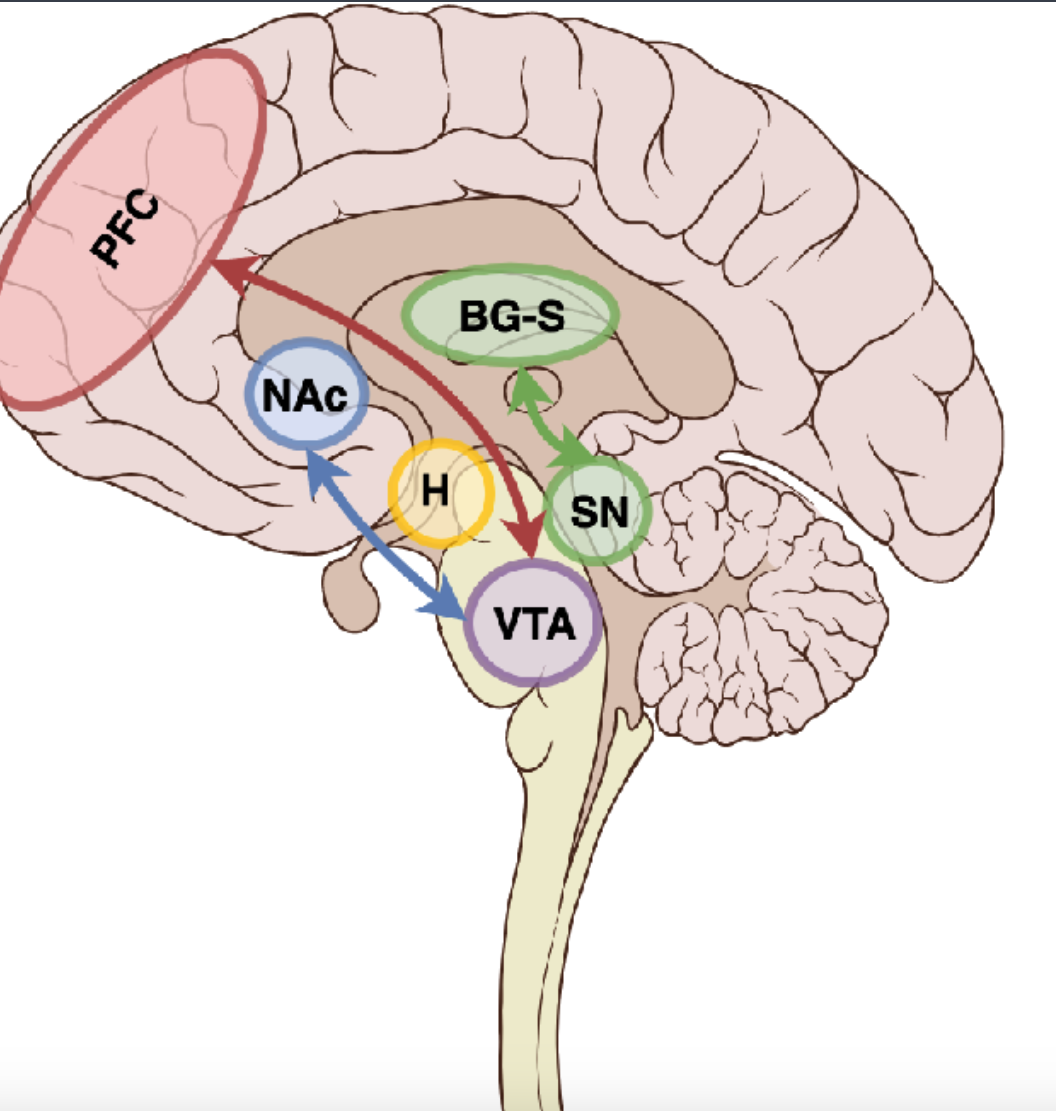
Dopaminergic Pathway 1
VTA (Ventral Tegmental Area) <—> PFC (Prefrontal Cortex) [Mesocortical]
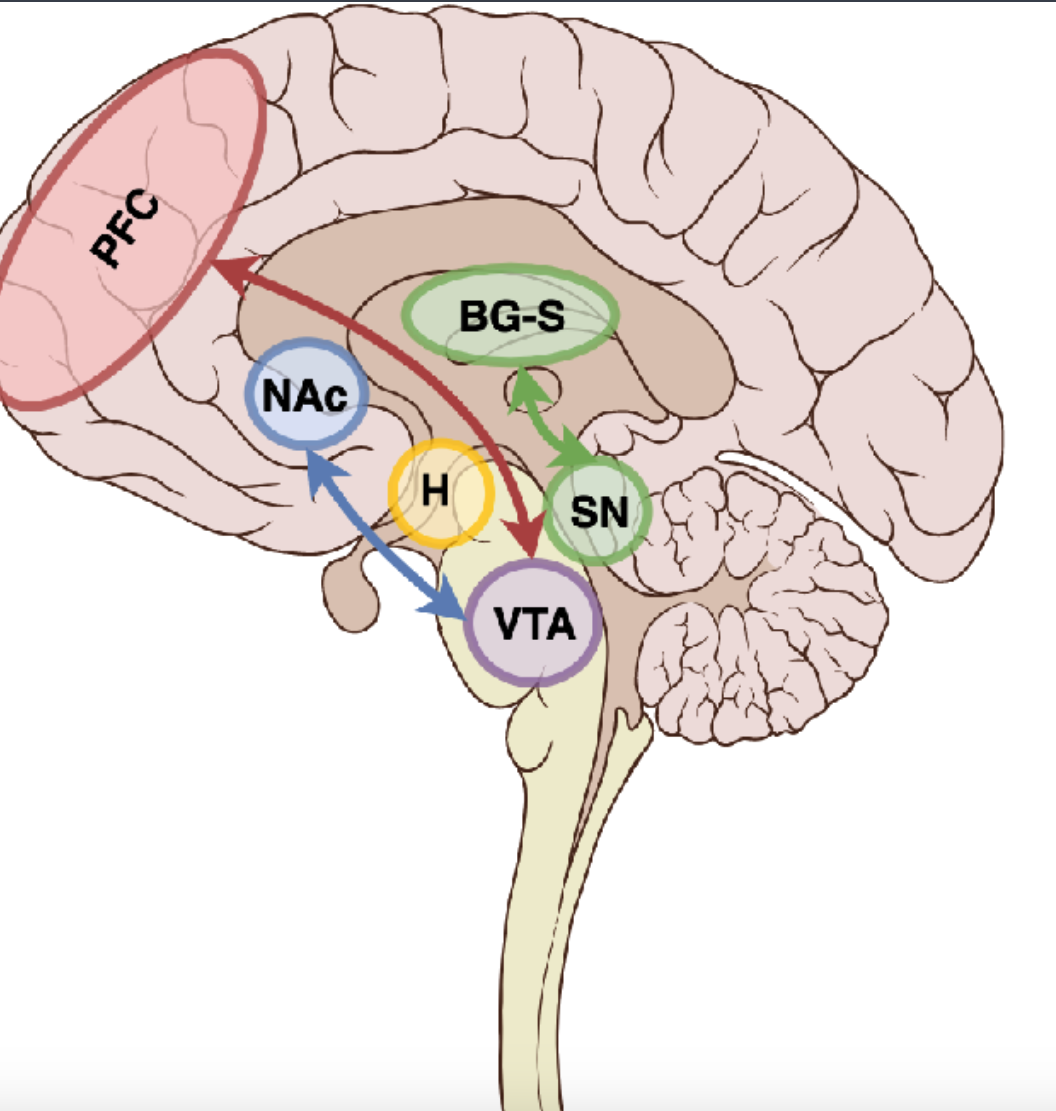
Dopaminergic Pathway 2
VTA (Ventral Tegmental Area) <—> NAc (Nucleus Accumbens) [Mesolimbic]
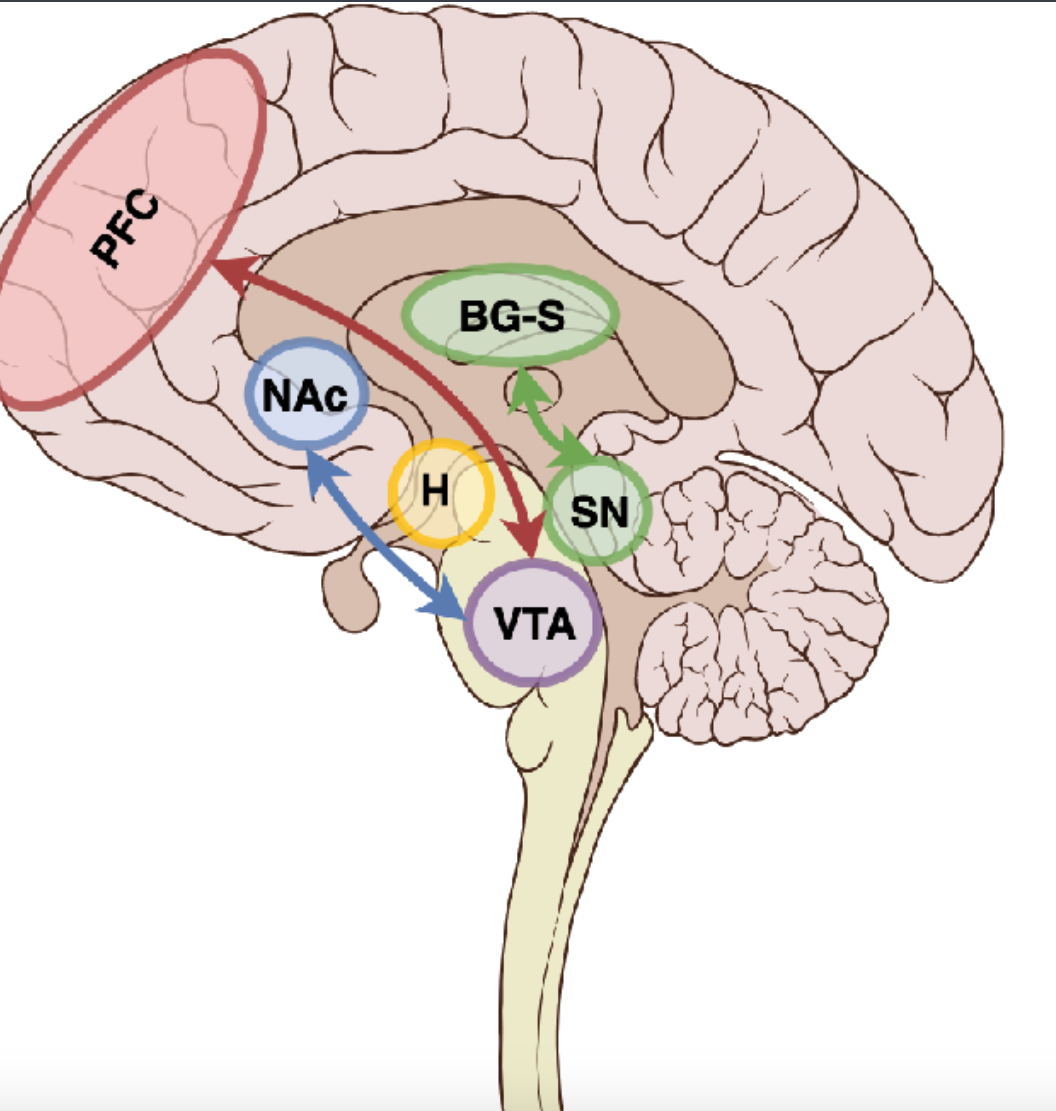
Dopaminergic Pathway 3
SN (Substantia Nigra) <—> BG-S (Basal Ganglia, striatum) [Nigrostriatal]
Substantia Nigra
produces dopamine in the left hemisphere and right hemisphere.
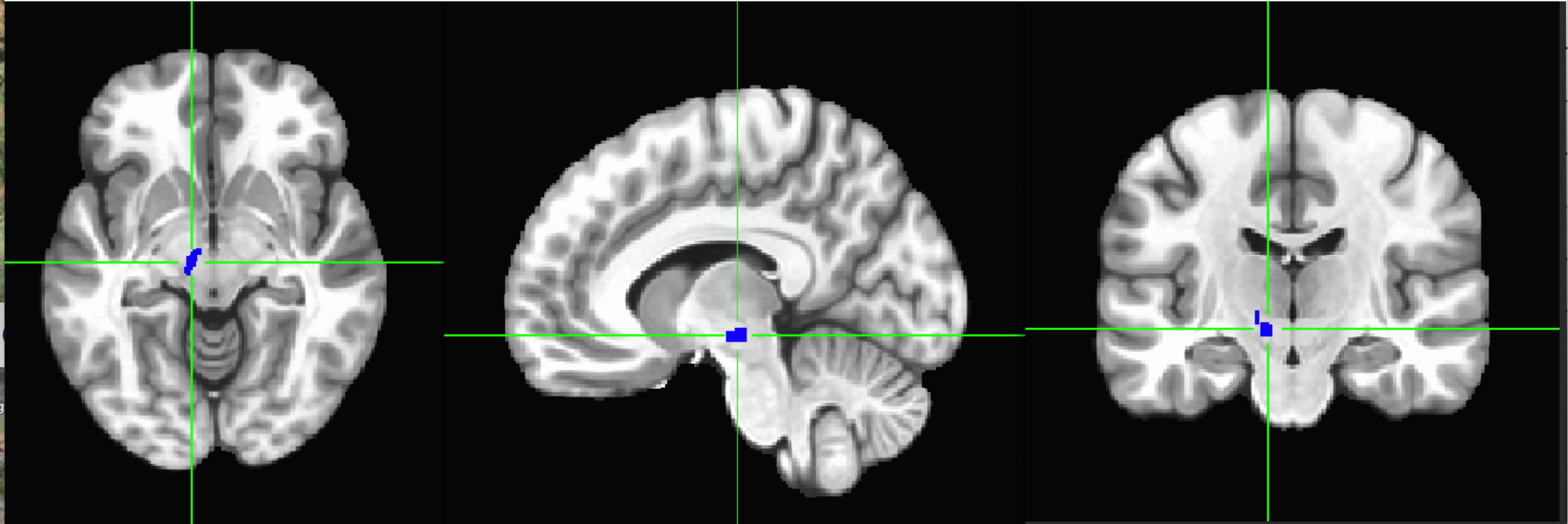
Ventral Tegmental area
next to the SN (substantia nigra). neurons in VTA project dopamine to the Nucleus Accumbens (NA)
Nucleus Accumbens (NA)
located in left and right hemisphere which are part of the dopamine reward pathway. the NA is also known as mesolimbic pathway which is studied in addictions

hypothalamus
left and right hemisphere that are both important for motivating behaviors. This is part of the Diencephalon

Thalamus
left and right hemisphere; part of the diencephalon and is the MOST important relay station for sensory information in the brain. Almost all sensory information have a synapse in thalamus before getting to other areas of the brain.

Geniculostriate Pathway
Visual pathway associated with processing pattern, color, and motion recognition. conscious
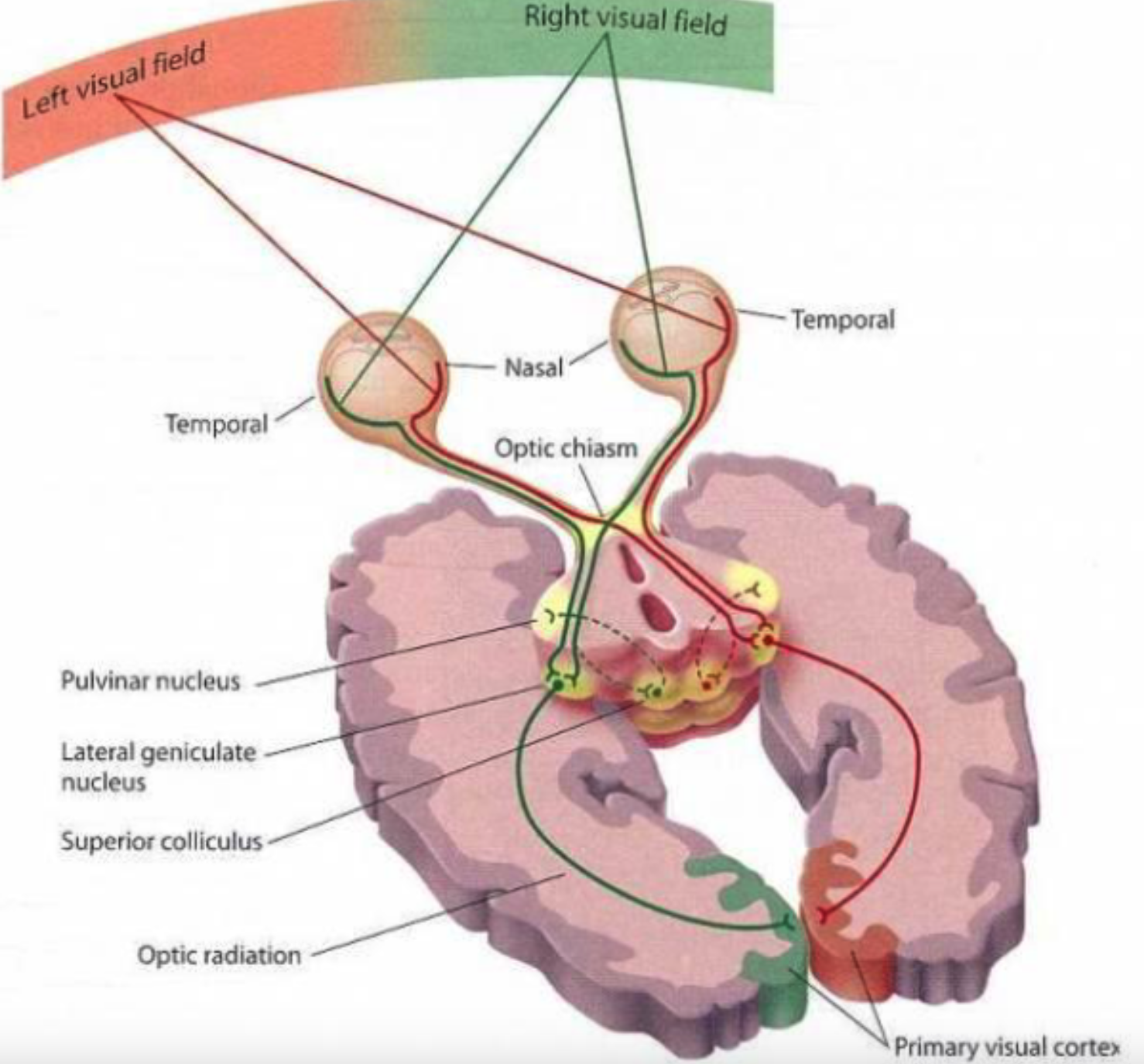
Tectopulvinar pathway
visual pathway associated with the spatial location of objects and is unconscious
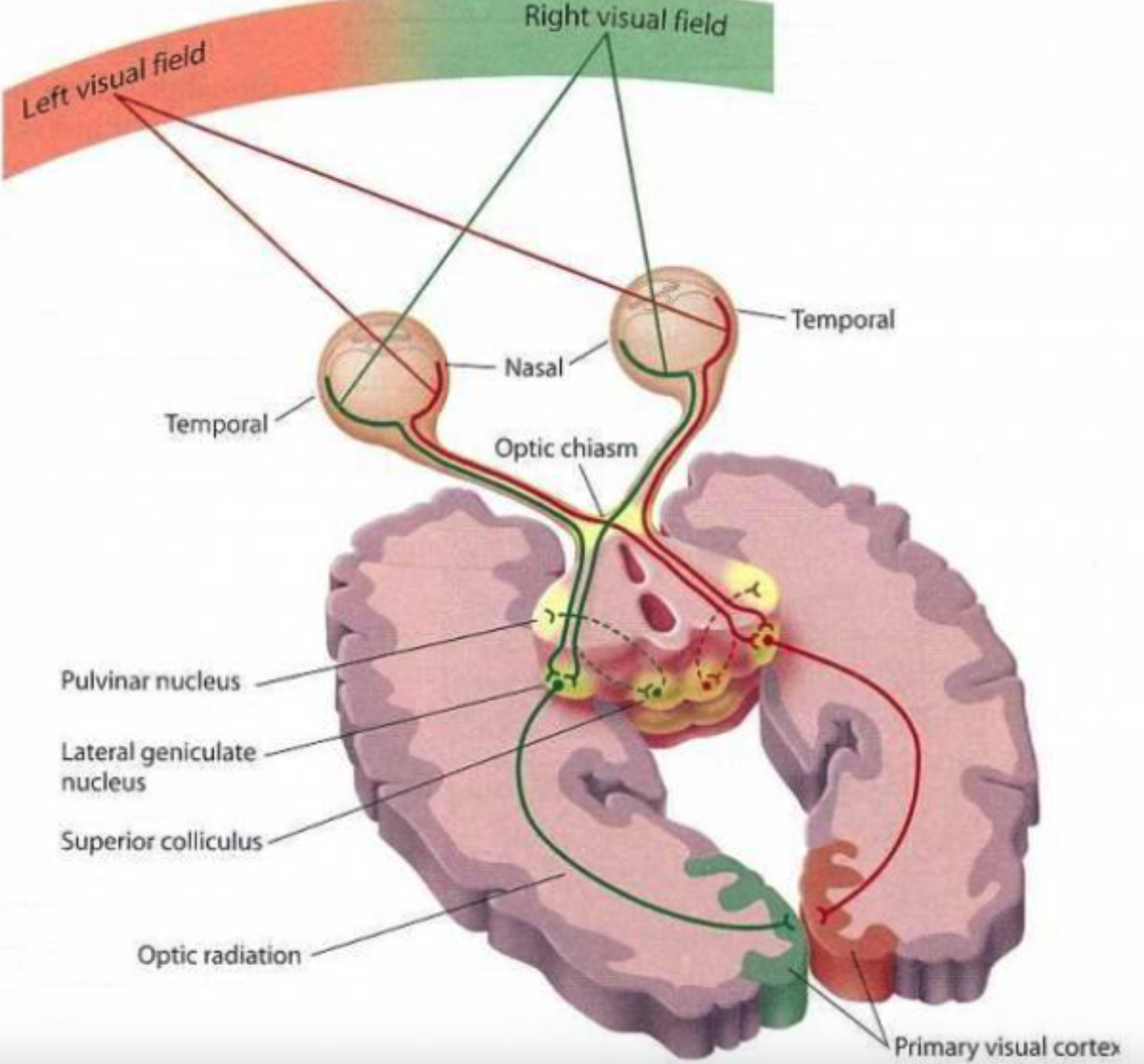
Where is the V1 primary visual cortex located?
in the striate cortex of the optical lobe
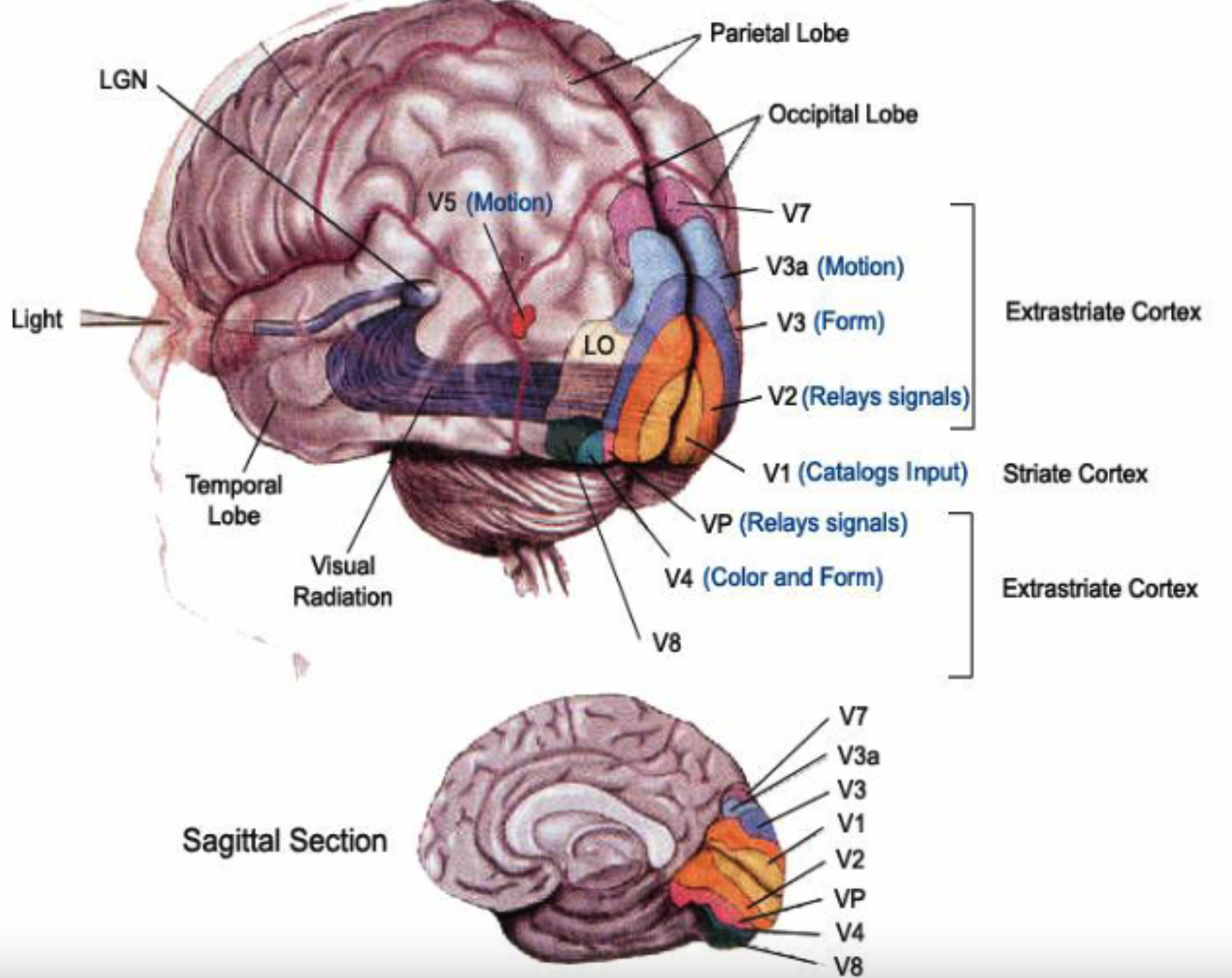
Dorsal Visual Stream location
the “where” portion located in the optical lobe going towards to parietal lobe
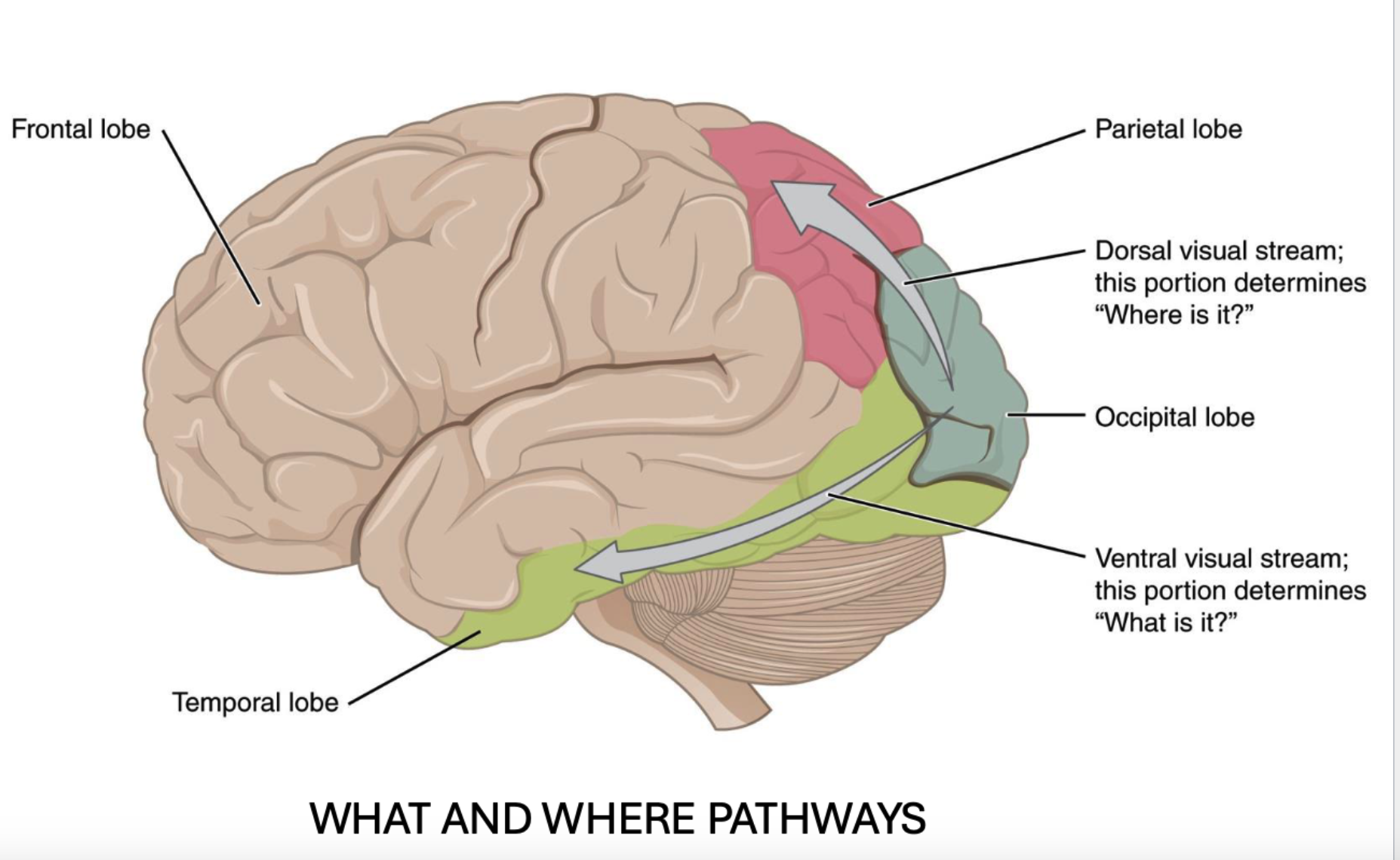
Ventral Visual system location
the “what” portion located in the optical lobe going towards the temporal lobe
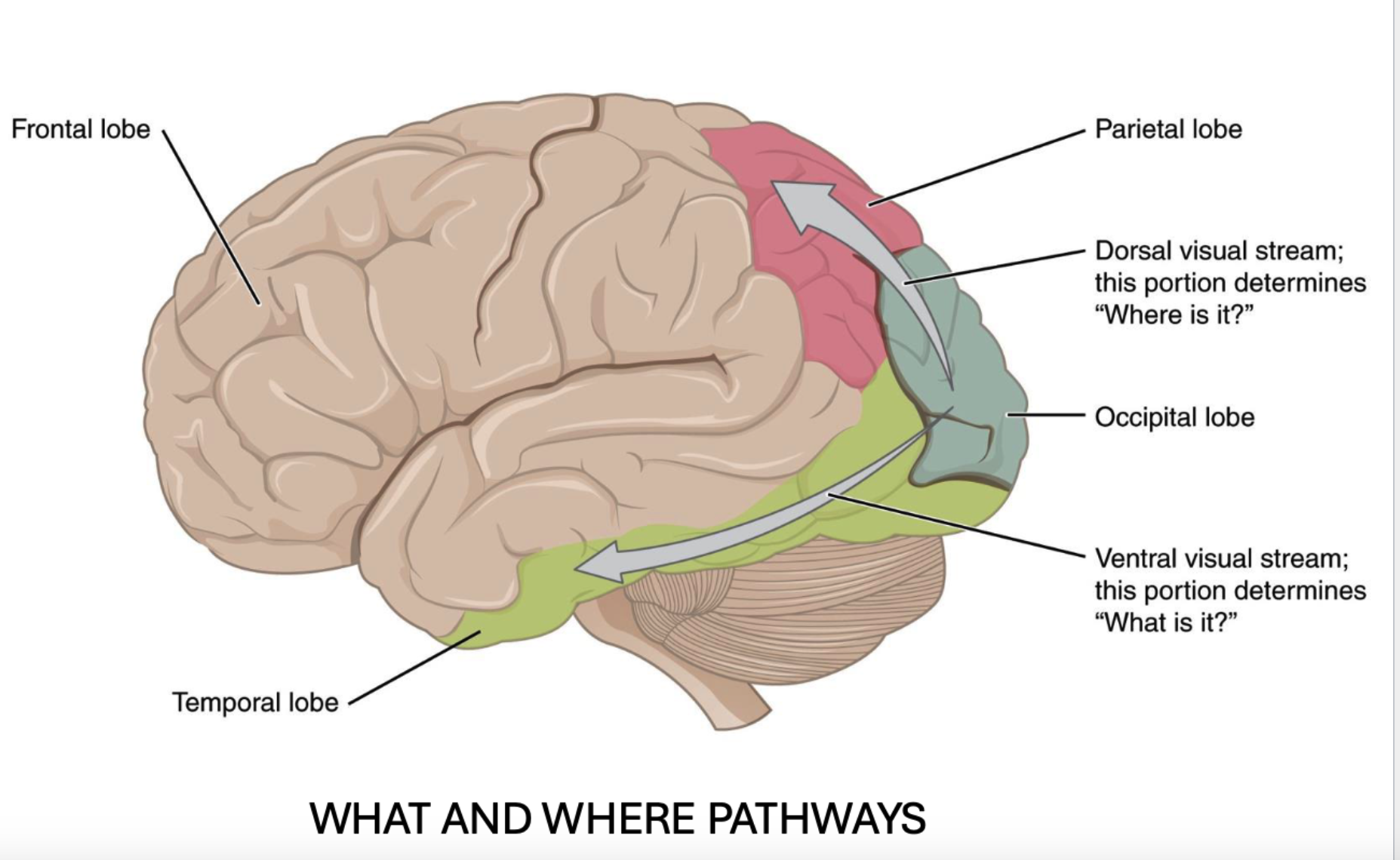
Fusiform Gyrus
(Part of the “WHAT” pathway) both left hemisphere and right are important for processing human faces, but the left one is also important for the recognition of words
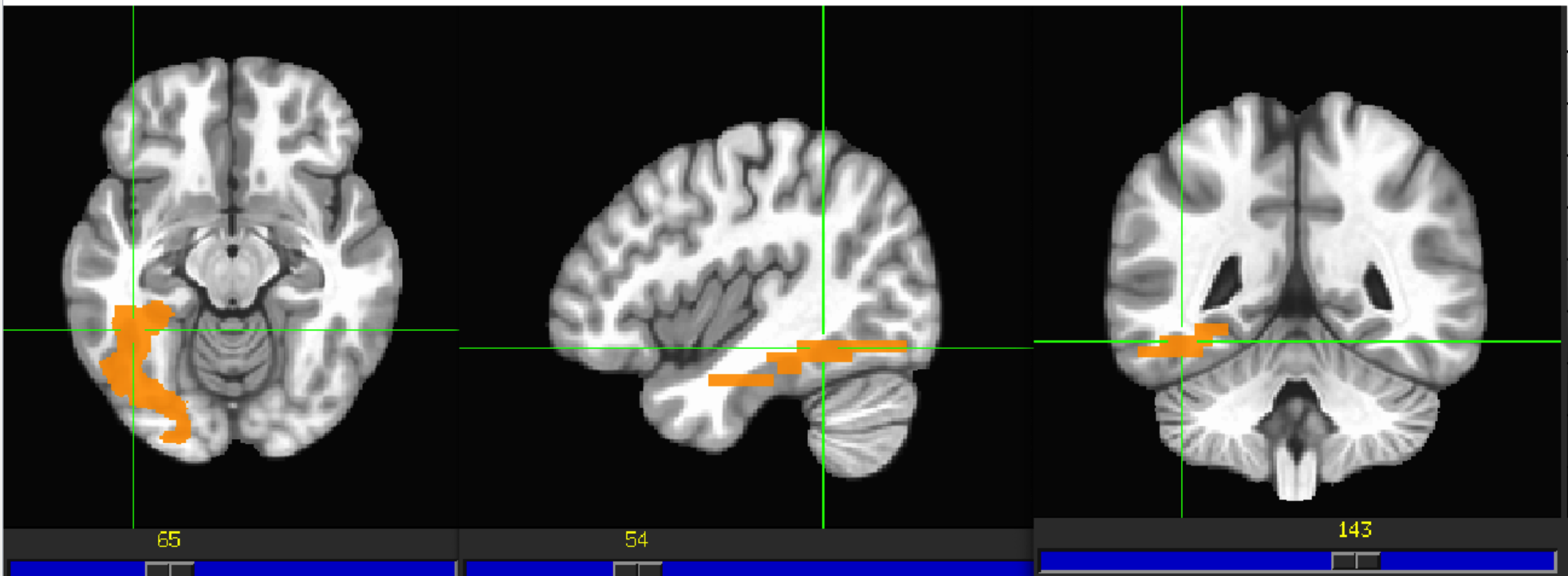
Inferior Temporal Gyrus
both left and right hemisphere are part of the “WHAT” visual pathway

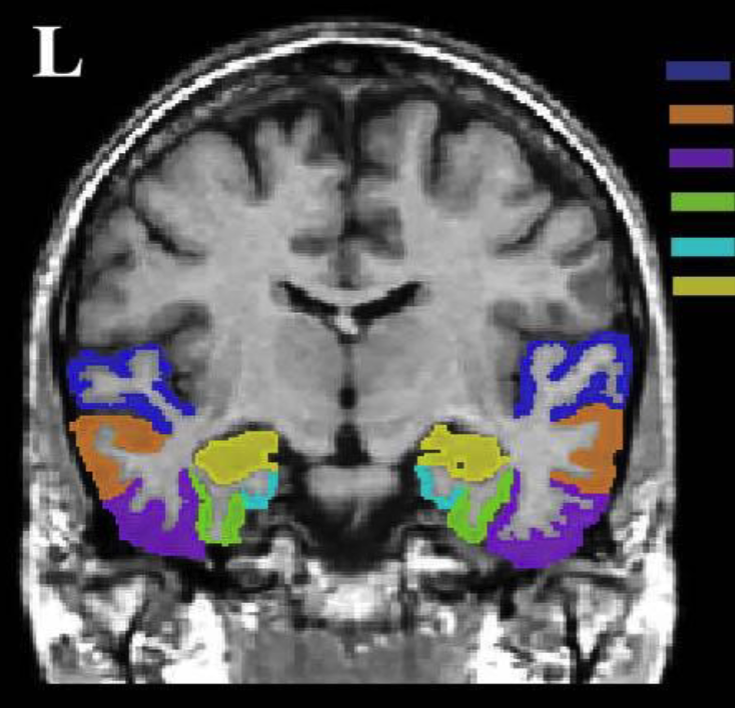
Temporal Lobes: What color goes with each?
STG (Superior Temporal Gyrus) navy blue, 2- MTG (Middle Temporal Gyrus) orange, ITG (Inferior Temporal Gyrus) purple, FG (Fusiform gyrus) green, PHG (Parahippocampal Gyrus) light blue, and HIPP (Hippocampus) yellow
What/ventral pathway
The ventral pathway involved in identifying objects: auditory starts in A1, ends in the superior temporal and visual starts in V1, ends in the inferior temporal
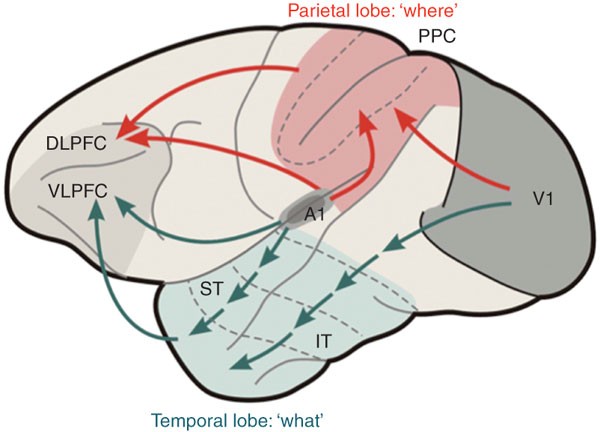
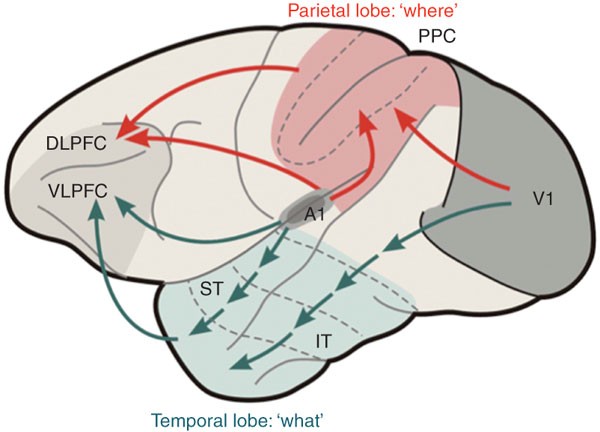
Where pathway
The dorsal pathway associated with spatial awareness and the location of objects. auditory starts in A1, ends in the posterior temporal cortex and parietal cortex
Somatosensory Cortex location
located in the post-central gyrus responsible for processing sensory information from the body.
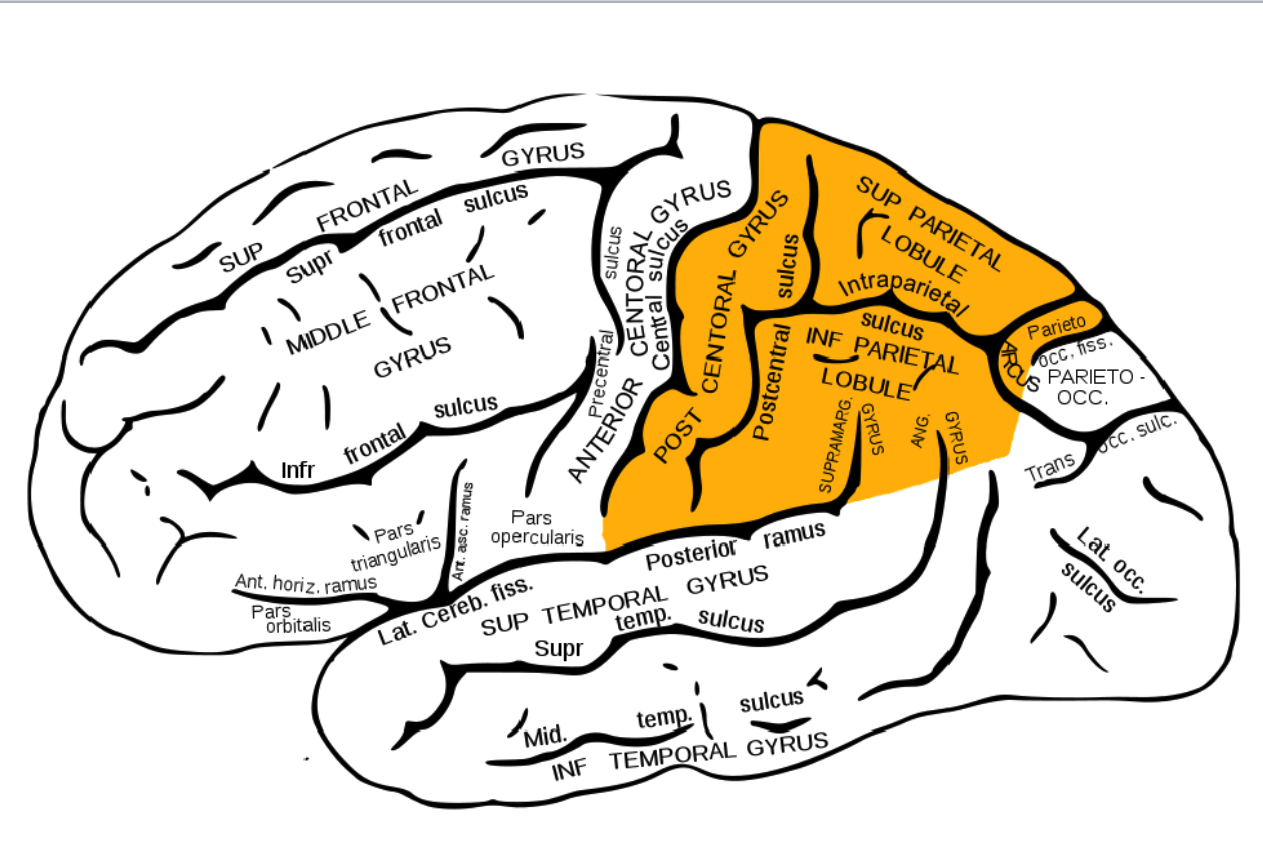
Posterior Parietal Cortex
A region in the parietal lobe, consisting of superior and inferior lobules, involved in integrating sensory information.
Primary Motor Cortex (M1) location
Located in the anterior-central gyrus, this area is responsible for planning and executing voluntary movements.
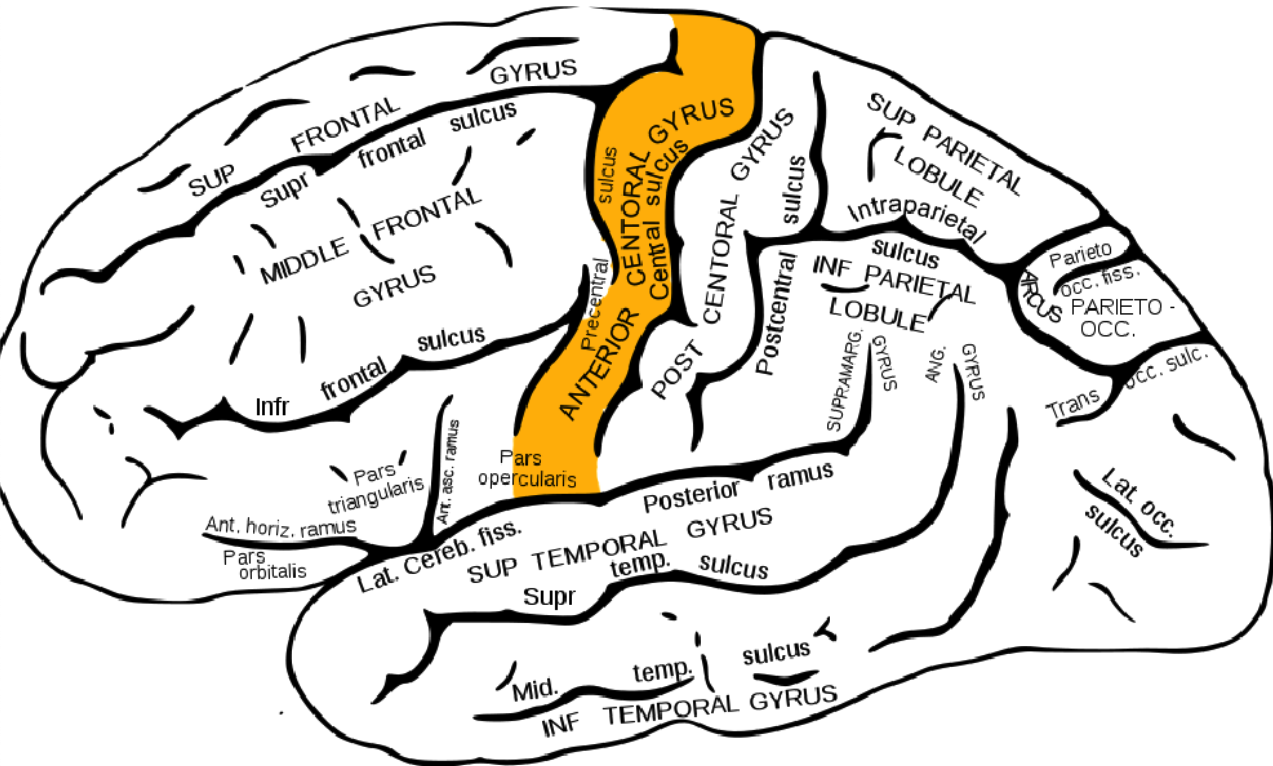
Anterior Cingulate Cortex
A part of the brain involved in emotion regulation, impulse control, and decision-making.
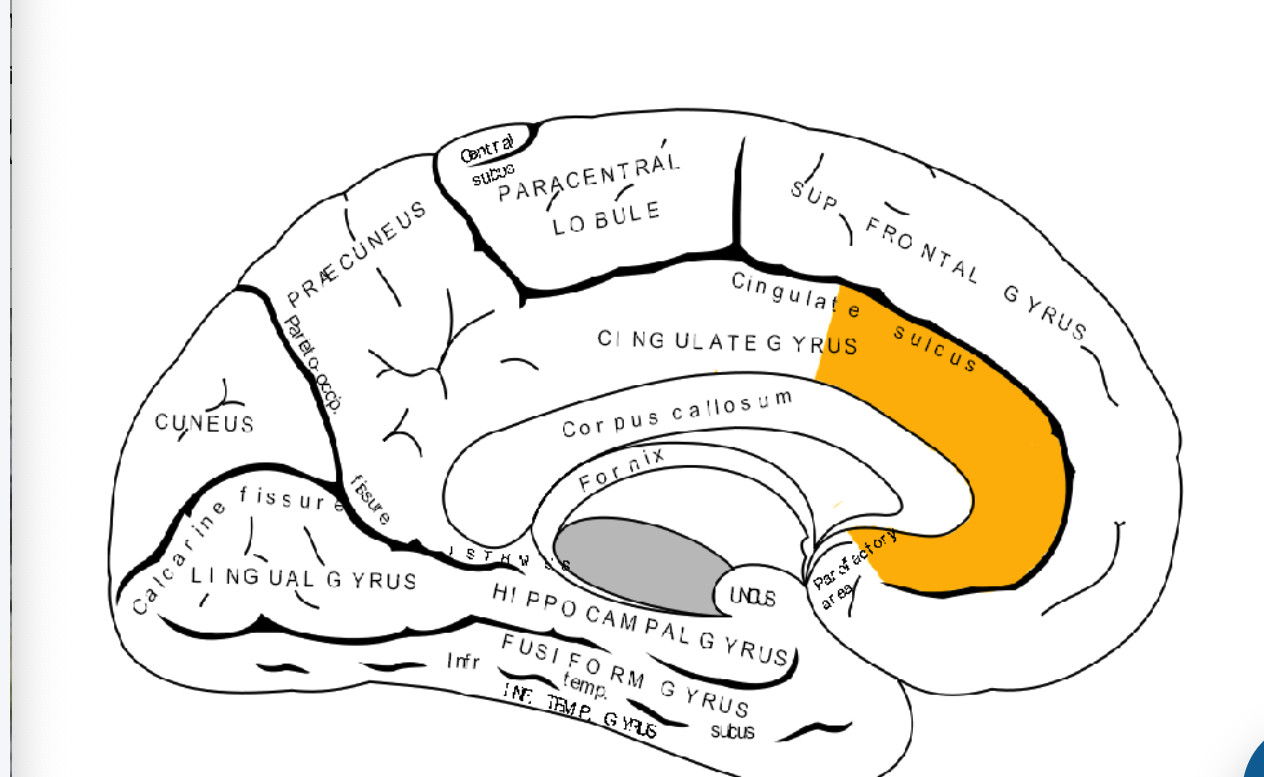
Orbitofrontal Cortex (OFC)
A functional part of the prefrontal cortex, sometimes referred to as ventromedial.
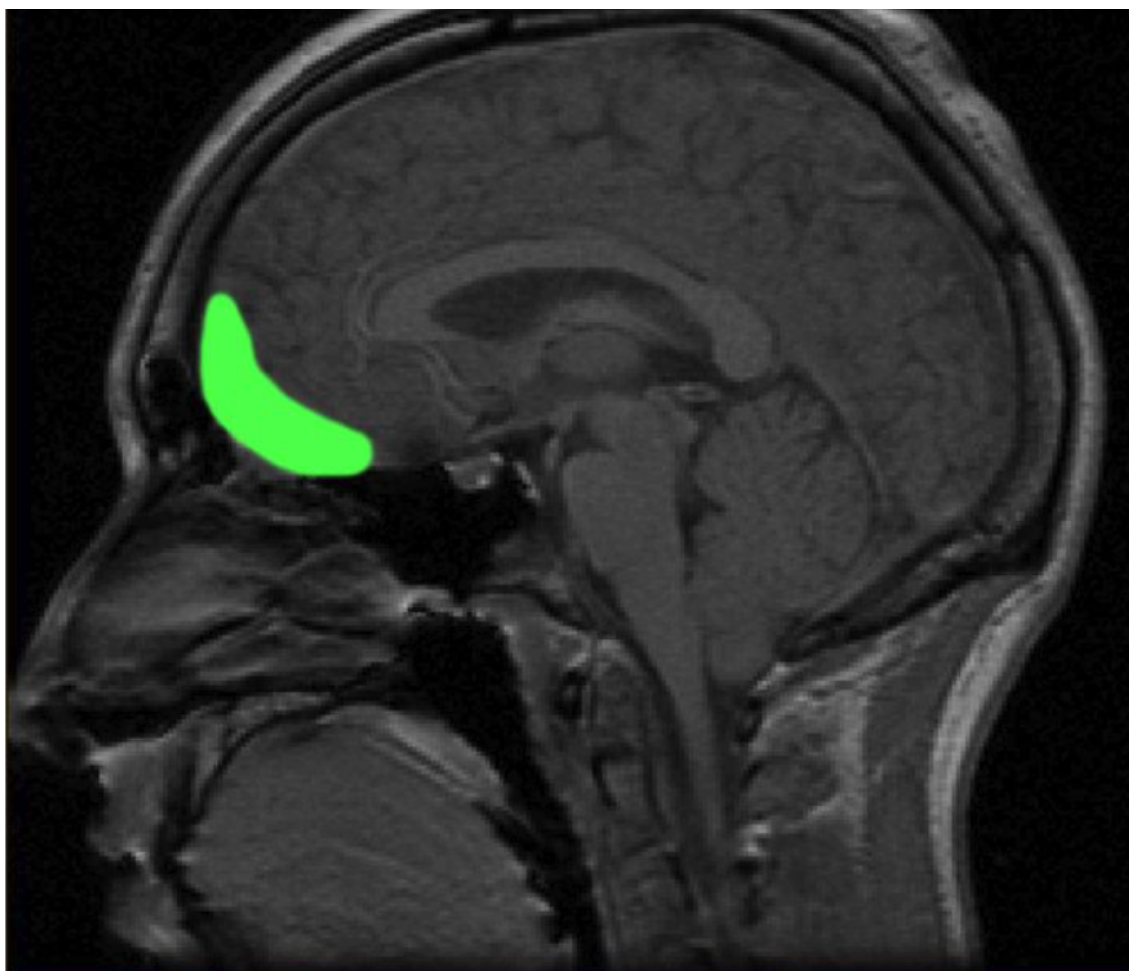
Dorsolateral Prefrontal Cortex (DLPFC)
One of the functional parts of the prefrontal cortex (white part)
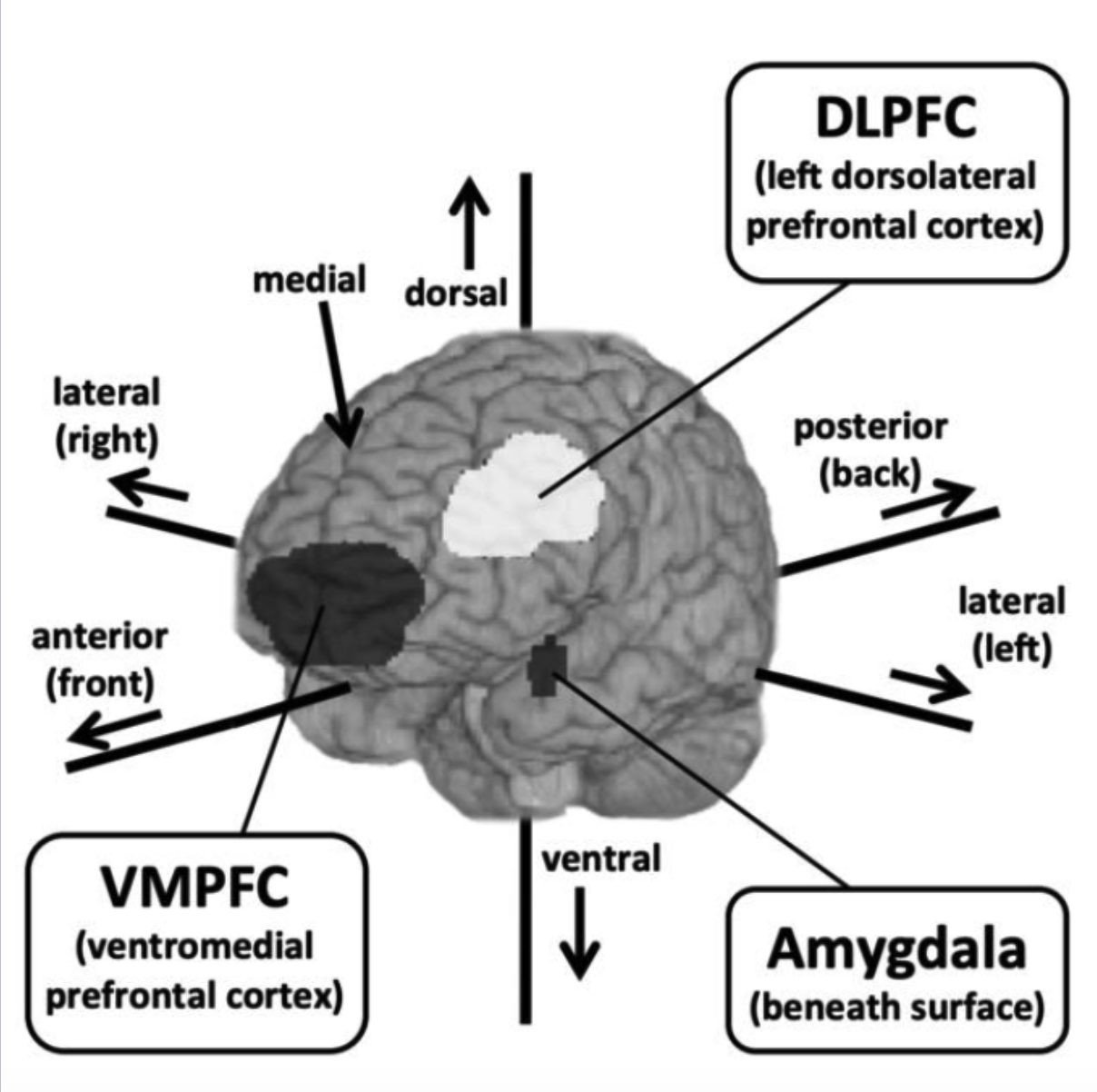
Hypothalamus
Part of the diencephalon that regulates vital behaviors like sleep and eating, with both left and right hemispheres influencing motivation.
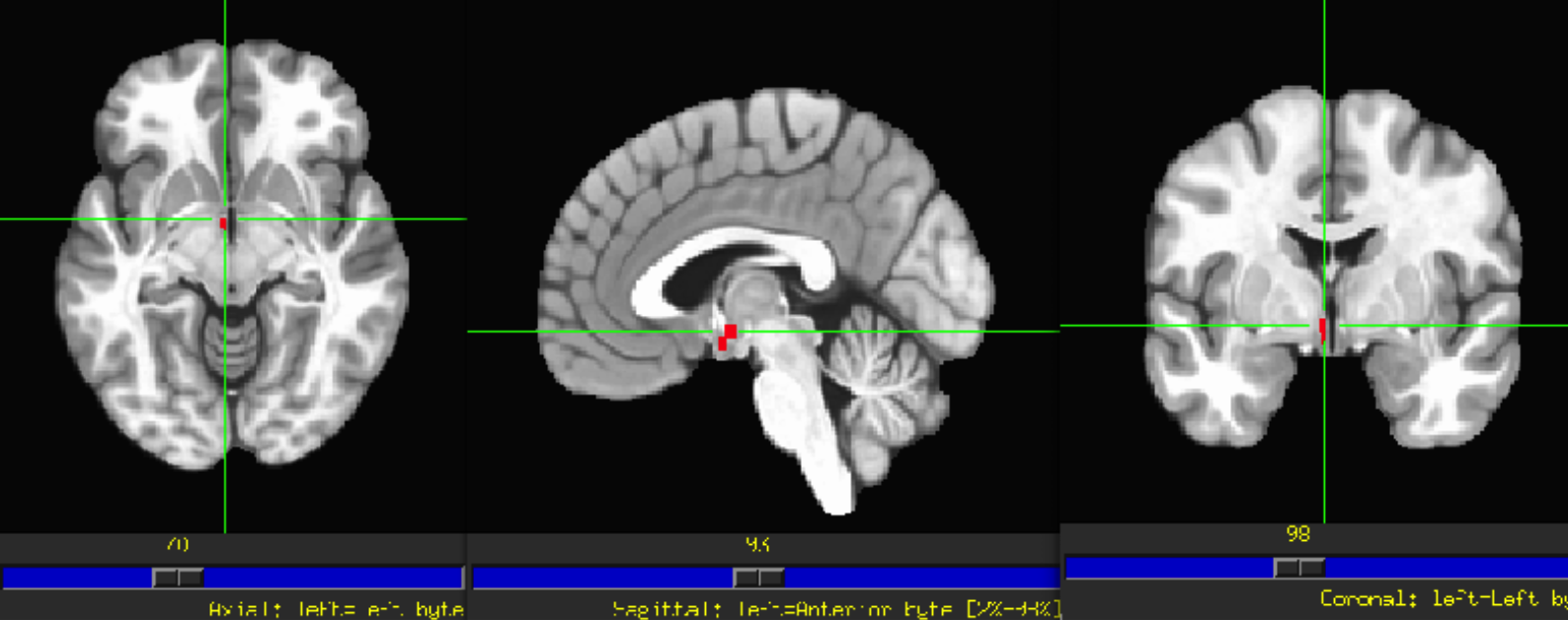
Thalamus
A major relay station for sensory information in the brain, where almost all sensory data is filtered before being sent to other brain areas.
